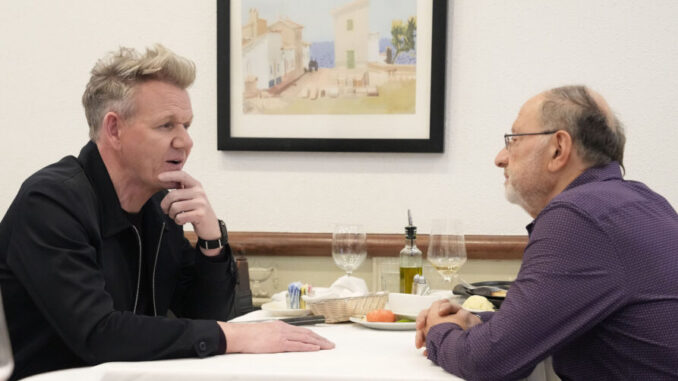
For over twenty years, Gordon Ramsay has not only been one of the most respected chefs in the world, but he has also become one of the most recognizable faces on television. With a career that spans restaurants, books, and a media empire, Ramsay’s journey from the pressure-cooker kitchens of London to global stardom is a story of grit, vision, and transformation. While audiences have come to love—or fear—him for his fiery temper and sharp tongue, what lies behind the TV persona is a relentless drive to elevate the culinary arts and connect with people across all walks of life.
The journey began with Boiling Point, a raw British documentary that followed a young Ramsay as he strove to earn three Michelin stars. This early exposure introduced audiences to the high-pressure world of fine dining and to a chef who took no shortcuts. It was this passion and honesty that struck a chord with viewers. Ramsay didn’t try to be likable—he was just himself. And that authenticity would become the foundation for his television empire.

Hell’s Kitchen, which launched in the UK in 2004 and in the U.S. in 2005, turned Ramsay into a household name. It wasn’t just another cooking competition—it was a reality show with real tension, real consequences, and a commanding figure at the center who demanded nothing but excellence. While the shouting and insults became infamous, behind the scenes Ramsay was deeply involved in every aspect of the show—from casting to kitchen layout. Crew members and former contestants have often spoken about the stark contrast between the explosive on-screen persona and the calm, caring, and exacting professional off-camera.
Following the success of Hell’s Kitchen, Ramsay dove deeper into human drama with Kitchen Nightmares. The premise—saving failing restaurants and emotionally broken owners—allowed viewers to see more of his heart. Though confrontations were inevitable, so were the breakthroughs. Ramsay wasn’t just fixing kitchens; he was reviving dreams. Many fans remember the emotional hugs and the quiet encouragement that came after the dust settled. His impact didn’t end when the cameras stopped rolling. Restaurateurs have frequently shared that Ramsay followed up, offered long-term support, and even kept in touch years after the episode aired.
In 2010, MasterChef brought a new dimension to Ramsay’s television presence. Here, he stepped into the role of mentor and teacher, helping home cooks transform their raw talent into professional-level skill. The show’s success led to spin-offs like MasterChef Junior, where Ramsay’s softer side shone through. He became a role model for young aspiring chefs, proving that behind the stern exterior was someone deeply invested in nurturing talent. The show not only entertained but inspired—sparking a culinary boom among younger viewers.
